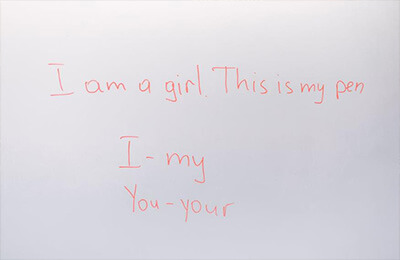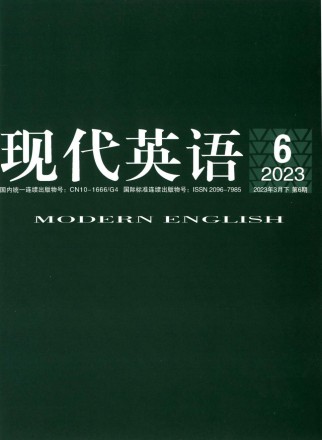英语知识点总结范文
时间:2023-02-27 11:09:26
引言:寻求写作上的突破?我们特意为您精选了4篇英语知识点总结范文,希望这些范文能够成为您写作时的参考,帮助您的文章更加丰富和深入。

篇1
The用法
1.表示特指的人或物
例:Please hand me the key on the desk. 请把桌上的钥匙递给我。
The girl in red is his sister. 穿红色衣服的女孩是他妹妹。
The building over there is the tallest in the town. 那边那幢大楼是这个城里最高的。
I like the music of the film. 我喜欢这部电影的音乐。
2.表示双方都知道的或心中明白的人或物
例: Shut the door, please. 请关门。
Has he returned the book? 那本书他还了吗?
Take the blue one, it is cheaper. 拿那个蓝的,它便宜些。
3.第二次提到
某人或某物第一次提到时用不定冠词,第二次提到时要用定冠词。
例:He saw a house in the distance. Jim's parents lived in the house. 他看见远处有一所房子,吉姆的父母就住在那所房子里。
There was once an old fisherman. The old fisherman had a cat. The cat was white. 从前有一个老渔夫。这个老渔夫有一只猫。这只猫是只白猫。
4.用在世界上独一无二的名词前
the sun太阳, the earth地球, the moon月亮,
the sky天空, the world 世界
例:The moon goes round the earth. 月亮绕着地球转。
There is not any cloud in the sky. 天空中没有一丝云彩。
It was a fine day in spring. The sun shone brightly. 这是一个晴朗的春日,阳光灿烂。
He is the richest man in the world. 他是世界上最富的人。
5.用在表示方向、方位的名词前
the east东方,the west西方,the south南方,
the north北方,the right右边,the left左边
例:The birds are flying to the north. 这些鸟向北方飞去。
The moon rises in the east and sets in the west. 月亮从东方升起,在西方落下。
The wind was blowing from the south. 风从南方吹来。
She lived to the west of the Summer Palace. 她住在颐和园的西边。
will与would的区别
1.表示意愿时的区别
will 表示现在的意愿,would 表示过去的意愿:
Go where you will. 你愿到哪里就到哪里。
She asked if I would go with them. 她问我是否愿意同他们一起去。
2.表示征求意见或提出请求的区别
主要用于第二人称的疑问句中,will 和 would 均可用,would 此时并不表示过去,而表示委婉语气:
Won’t you take off your coat? 你要不要把大衣脱掉?
Will you please post the letter for me? 请帮我寄了这封信好吗?
3.表示习惯和倾向性的区别
will 表示现在的习惯,would 表示过去的习惯:
This window won’t open. 这扇窗户经常打不开。
When he was a child, he would often go skating. 他小时候经常去滑冰。
篇2
1,谢谢你的全家福Thanksforthephotoofyourfamily.
你的全家福photoofyourfamily=yourfamilyphoto
2谢谢你帮了我Thanksforhelpingme=Thanksforyourhelp
2herebe句型和therebe句型一样,临近原则Hereisacupofteaandtwoapples.
语法:初中英语语法基础知识,也是初中英语考试的复习重点,河南中招英语考试。
1)单数名词加s:students,apples,bags,trees,books,brothers.?
2)以s、x、sh、ch结尾的名词加es:glasses,boxes,brushes,matches.?
3)以辅音字母加y结尾的名词,变y为i加es:cities,babies,enemies.?4)以f或fe结尾的名词,多数变f为v加es:wives,knives.但有些词只加s:roofs,proofs,chiefs.?
篇3
3.免费的 be free
4.通过电脑学习study on computers
5.活到80岁live to be 80 years old
6.在整个世界 in the whole world
7.更少的污染less polution
8.更少的计算机fewer computers
9.在中学be in middle school
10.在上班be at work
11.不/同意 disagree/agree with
12.上大学go to college
13.五年前five years ago
14.空闲时间 free time
15.拉小提琴 play the violin
16.太空站 space statio
17.电脑程序设计师 computer programmer
18.住在公寓里live in an apartment
19.爱上fall in lovewith
20.去滑冰go skating
21.下次next time
22.在周末on weekends/at weekend/on the weekend
23.养宠物keep a pet/pets
24.赢得比赛win the game/match
25.看起来整洁look smart
26.实现come true
27.工作面试job interview
28.穿着校服wear uniforms
29.科幻电影science fiction movies
30.数百hundreds of
31.帮忙做某事help do sth./help with sth.
32.看起来像look like
33.醒来wake up
34.再三的again and again
篇4
3.第一双溜冰鞋the first pair of skates
4.对某人说talk to sb./say …to sb.
5.山顶学校Hilltop School
6.为慈善机构筹款raise money for charity/charities
7.整整五个小时the whole five hours
8.三年半three years and a half/three and a half years
9.一个半小时one and a half hours/one hour and a half
10.集邮collect stamps
11.对…感兴趣be interested in/take an interest in
12.马拉松溜冰赛skating marathon
13.自从去年since last year
14.第一个/最后一个做某事的人the first/last one to do sth.
15.多久how long
16.收集贝壳collect shells
17.具有俄罗斯风格in Russian style
18.…的首都、省会the capital of
19.许多犹太人 a lot of Jews
20.欧洲影响 European influence
21了解/学习关于…learn …about…
22.一个有丰富历史的城市 a city with a colorful history
23.感到惊讶be/feel surprised
24.一千多年前more than 1000 years ago
25.告诉某人某事 tell sb.about sth.
26.学习研究西方的历史study western history
27.确信 be sure/make sure
28.很难理解be difficult/hard to understand
29.开始做某事start doing/to do sth
30.越…,越… the比较级…the 比较级…
31.其他任何人anyone else
31.为某事感谢某人thanks/thank you for+sth/doing sth
32.事实上in fact
33.用完;用尽run out of/run out
34.顺便一提;顺便问问by the way
35.在我七岁生日那天on my senventh birthday
36我的爱好 my hobby
37.放风筝fly kites/a kite
38.win the first place
38.两年多 more than two years
39.最不寻常/常见的爱好the most unusual/common hobby
40.给你不同的题目give you different topics
41.在冬天期间during the winter
42.在远处far away
43.成千上万的thousands of
44.想起;想到think of/about
45西方历史westenr history
46有名的人物 famous people
47.受到…的欢迎 be welcomed by
